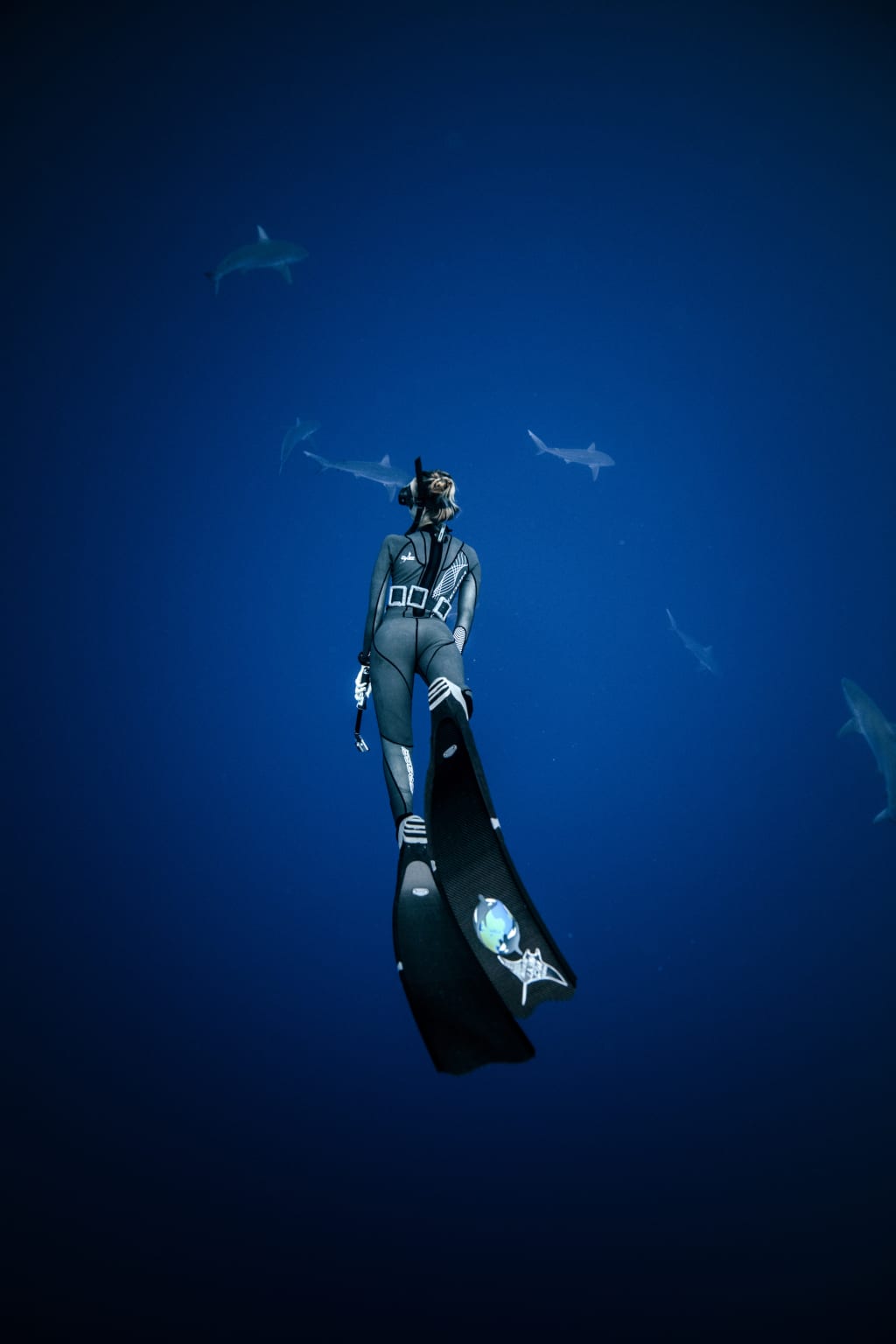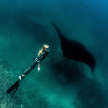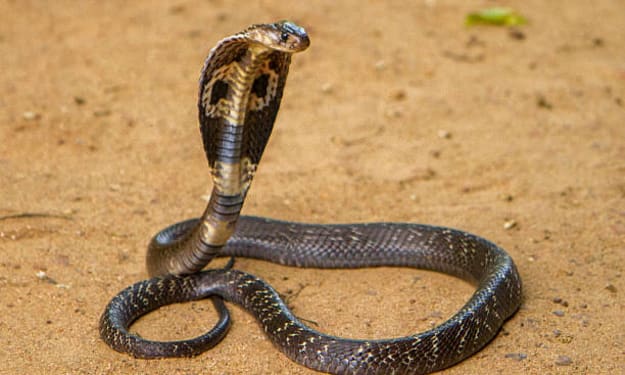What Swimming With Sharks for the First Time Was Like
Turning My Biggest Fear into My Biggest Fascination

Like any Jaws-era child, I grew up frightened of sharks. Don't get me wrong, I never believed they were mindless monsters who purposefully seek out humans to attack, but I definitely didn't trust them. So much so that as a little girl I wouldn't even swim alone in a pool. I was convinced one would somehow sneak through the filter and "get" me — clearly I didn't understand how filters worked yet.
When I started free diving I realized it was affecting my ability. In a sport where you're trying to become as relaxed as possible, slowing your heart rate and even your thoughts down to use up less oxygen, nerves are not your friend. No matter how hard I tried, a little part of me was always looking over my shoulder thinking "Brucey" from Jaws was going to sneak up on me.
Eventually, some good friends threw me on the back of a jet ski and hauled me a couple miles offshore to find some sharks. They knew the fear would be gone once I saw them with my own eyes. I was hopeful but skeptical enough to feign the flu in the morning and bump my claims up to stomach flu when they (correctly) called BS, but neither worked. So, off we went. I was with three friends, only one of whom hadn't yet swam with sharks either. The two of us (okay, mostly me) were both trading nervous looks all morning.
We pulled up to an area sharks are frequently seen and waited. It didn't take long and a few minutes later I got my first look at a shark that wasn't the star of a horror film. Then, more began to appear. They were easier to spot from above the surface than I had imagined. I previously always pictured them lurking below and hidden from sight, even in clear blue waters, but these big unmistakable grey shapes passed by the jet skis slowly, appearing relatively uninterested in us. Without hesitation, two friends slipped right in. They were followed shortly by the only other newbie of the group, leaving me sitting alone on a jet ski near hyperventilation. They urged me to jump in but I couldn't do it. Not even with the pole I brought from my now decapitated Swiffer to use as a buffer (oh yes I did). They again assured me I'd be fine, telling me the same thing they had told me all morning: just don't forget to make eye contact. A tip that years later I'll vouch is arguably the most important part of swimming with sharks. So, terrified and practically strangling my headless Swiffer, I finally slid in.
I thought my heart would be beating out of my chest, now center stage to my biggest fear, but strangely... it wasn't. Still, I tucked myself behind my friends and quickly counted six sharks. They were Galapagos sharks, which in Hawaii range about eight to ten feet long. Despite the human barrier I had built myself, I started to panic. They were all AROUND us. Leading up to this moment I had specifically and repeatedly been told eye contact was the most important thing to remember, but WHICH one was I supposed to lock eyes with? The one behind me? To my right? Left? Beneath? I started to get what I call "the fear giggles." The fear giggles are a strange phenomenon you also may have experienced yourself in the midst of a panic. At some point while frozen in terror, realizing both the flight and fight options are not available, a nervous and quiet uncontrollable laughter arises. In the water is an unfortunate location to have this feeling, as water tends to start filling your mouth and mask. So, with gurgled giggling coming out of my snorkel, I attempted to find a way to pursue the flight option and made my way back against the current to clamber back up onto the sled of the jet ski.
A friend followed, and through seemingly much calmer laughter told me that constant eye contact with every single shark in the vicinity is (obviously) impossible. What they had meant was to frequently look around to keep an eye on the ones around you and give some heavy eye contact to the ones swimming up closest or repeatedly to you.
20 minutes of debating internally with myself later, I once again went over this new knowledge in my head, took a few deep breaths, clutched my Swiffer, and hopped back in. I again smushed myself into the middle of our group, but when I looked around from my hiding place I saw that almost all the sharks had lost interest in us and taken off. Only one big male remained. I started to get more comfortable without having to juggle so many staring contests at once. As he would do passes by me I began pushing myself to follow behind him and it quickly became apparent that he was actually pretty afraid and cautious of me. I even reached out towards his tail once and he wiggled off, afraid I would touch him.
That was about three years ago now, and I can't count how many times I've had the opportunity to swim with sharks since. I've learned so much from fellow divers and the team at One Ocean Diving and Research, people who have spent their entire careers studying and swimming with sharks all over the world. I've also learned about the devastating decline of shark populations due to human practices like shark finning and overfishing. As a keystone species, sharks are arguably one of the most important animals in the ocean. Their removal can devastate the ecosystems they're meant to play a vital role in, creating "dead zones" and destroying healthy biodiversity. The ocean's health depends largely on sharks and our health depends largely, if not completely, on the ocean. We lose about two to three sharks every single second, a number so large it's hard to absorb, and most people either don't know or don't care because of misplaced fears like the ones I had.
My biggest fear becoming one of my biggest fascinations still surprises me. I'm no longer afraid of sharks, I'm afraid for them. It's turned me into a passionate advocate for these animals' protection and a shark lover for life.
About the Creator
Natalie Kate
I am a marine conservationist and diver. I also co-founded an organization called Keiko Conservation that creates ways for anyone to get involved in marine conservation from anywhere in the world.
IG: @nataliekparra







Comments
There are no comments for this story
Be the first to respond and start the conversation.